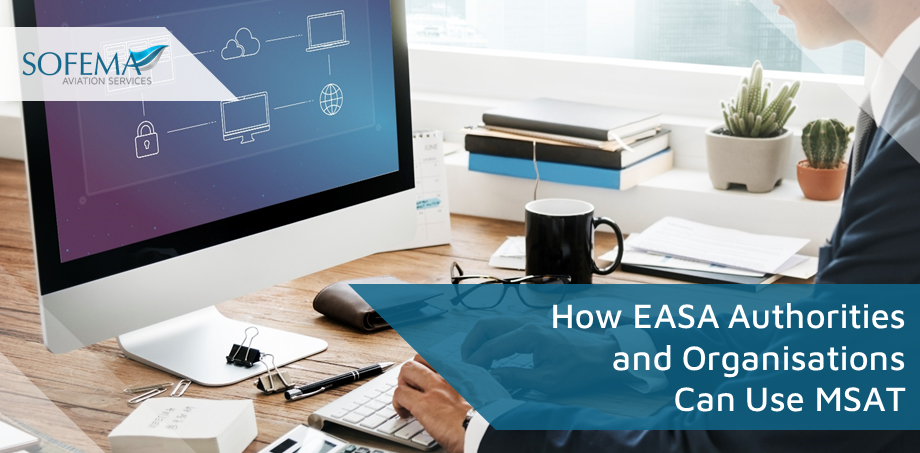Sofema Aviation Services (SAS) www.sassofia.com considers the opportunities for both Competent Authorities and Industry to take advantage of the EASA Management System Assessment Tool (MSAT).
Introduction – MSAT aims to significantly contribute to improving safety management and oversight within the aviation industry, aligning with both EU regulations and international safety management standards. The collaborative effort between industry experts and competent authorities in developing and updating MSAT reflects a shared commitment to enhancing aviation safety across the European Union.
For Regulatory Authorities
- Facilitate Assessment of Management Systems: MSAT aids authorities in conducting both initial certification assessments and ongoing oversight activities, ensuring that aviation organizations adhere to the highest safety standards.
- Promote Safety Management Systems (SMS): The tool integrates the principles of ICAO Annex 19 and the ICAO Safety Management Manual, emphasizing the importance of establishing and maintaining an effective SMS based on its four pillars: safety policy and objectives, safety risk management, safety assurance, and safety promotion.
- Support Compliance Monitoring: MSAT evaluates an organization’s compliance monitoring system, which is crucial for ensuring adherence to relevant EU regulations and standards.
- Enable Continuous Improvement: Authorities can encourage organizations to use MSAT not just for compliance but as a means for ongoing self-improvement, identifying areas for enhancement and implementing best practices.
For Organizations:
- Self-Assessment and Improvement: Organizations can use MSAT to evaluate the effectiveness of their management systems, identify areas for improvement, and implement corrective actions to enhance safety.
- Facilitate Performance-Based Oversight: MSAT supports organizations in moving beyond compliance to focus on improving the actual performance and effectiveness of their management systems.
- Encourage Collaborative Approach: The tool fosters a collaborative approach between organizations and competent authorities, promoting a common understanding of management system effectiveness and supporting mutual acceptance of safety management practices.
Benefits and Advantages
- Enhanced Safety Management: By emphasizing the core elements of SMS, MSAT helps in identifying hazards, managing risks, and promoting a safety culture within organizations, leading to an overall enhancement of aviation safety.
- Performance-Based Oversight: MSAT facilitates the shift towards performance-based oversight, focusing on the effectiveness and efficiency of management systems rather than mere compliance with regulations.
- Continuous Improvement: The tool encourages organizations to engage in continuous improvement, using the assessment results to make informed decisions and implement best practices.
- Collaborative Safety Culture: MSAT promotes a collaborative safety culture between aviation organizations and regulatory authorities, ensuring a unified approach to managing safety risks.
- Flexibility and Adaptability: MSAT is designed to be adaptable to the specific needs and contexts of different organizations, making it a versatile tool for a wide range of users.
- Compliance and Beyond: While ensuring compliance with EU regulations, MSAT also guides organizations in achieving higher safety performance levels, moving beyond compliance to excellence in safety management.
Challenges and Best Practices for Effective Use
Implementing MSAT involves overcoming challenges such as the complexity of integrating safety management activities, the shift from a compliance-based to a performance-based oversight model and ensuring adequate training and competence among users.
- Best practices to address these challenges include developing comprehensive training programs, implementing continuous feedback mechanisms for tool improvement, and adapting the use of MSAT to cater to the unique needs of different organizations.
Next Steps
Follow this link to our Library to find & download related documents for Free.
Please see Sofema Aviation Services (www.sassofia.com) and Sofema Online (www.sofemaonline.com) or email team@sassofia.com for questions, comments or suggestions.
Tags:
Compliance, EASA SMS, Safety Management, Compliance Monitoring, Safety Culture, SAS blogs, best practices, Aviation Safety Management System (SMS), EASA MSAT Tool, Management System Assessment Tool MSAT




